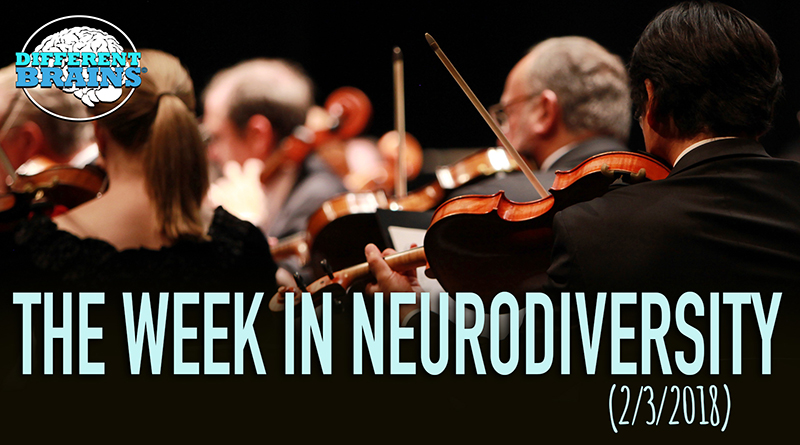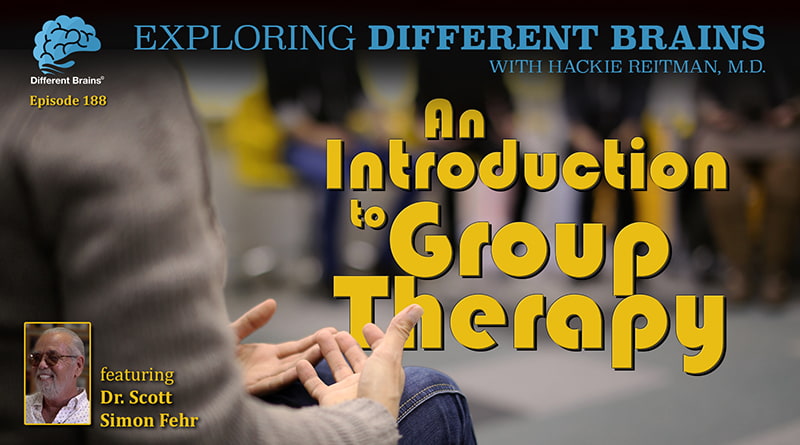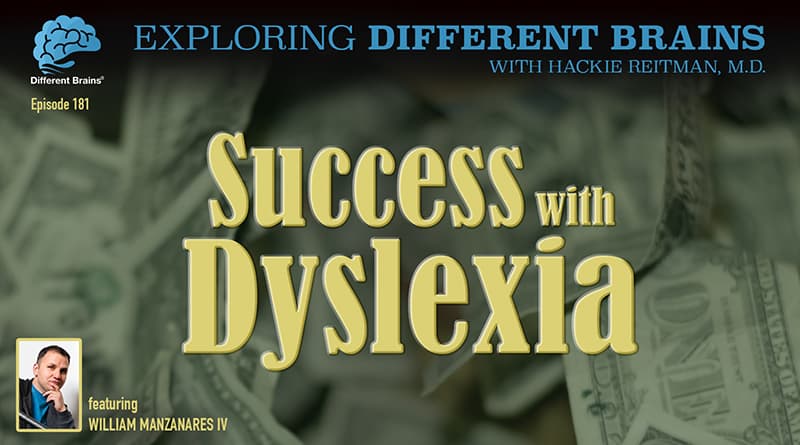Becoming a Mental Health Professional, with Dr. Mark Goulston | EDB 293

Author & psychiatrist Dr. Mark Goulston shares his journey to being a mental health professional.
Originally a UCLA professor of psychiatry for over 25 years, and a former FBI and police hostage negotiation trainer, Dr. Mark Goulston’s expertise has been forged and proven in the crucible of real-life, high stakes situations. An influencer who helps influencers become more influential, his unique background has made him an indispensable and sought after resource and change facilitator to Fortune 500 leaders, entrepreneurs and educators across the nation. He is also host of the podcast My Wakeup Call. and is a producer on the documentary What I Wish My Parents Knew.
For more about Dr. Goulston: http://markgoulston.com/
For more about What I Wish My Parents Knew: https://tellmystory.org/
AUDIO PODCAST VERSION:
Or look for us on your favorite podcast provider:
iTunes | Stitcher | SoundCloud
FULL TRANSCRIPTION
Note: the following transcription was automatically generated. Some imperfections may exist.
DR HACKIE REITMAN (HR): Hello, and welcome to Exploring Different Brains. I’m Dr. Hackie Reitman. Today we are continuing my conversation with author, psychiatrist, self advocate, and good friend Dr. Mark Goulston: Refresh our audience because some of some of our audience didn’t see the first time around on your background, and your qualifications and what you do for a living, because you’re pretty amazing.
DR MARK GOULSTON (MG): Well, I went to medical school with Hackie, and it and we shared a common person there who was very instrumental in both of our lives. He was the dean of our Dean of Students, Bill McNary. And he changed my life, and he may have saved my life, because I dropped out of medical school twice, probably for untreated depression. And the second time I dropped out, they, they, they wanted to kick me out because they were losing matching funds. And I understand that, you know, there’s a part of me that now knows a little bit about business. And I would, I probably would have wanted to cut my losses on this guy dropping out for the second time. And but it was to the credit of the dean of the school. He met with me, and he send a letter to Bill McNary. Because I didn’t know that they were planning to kick me out. And I think the dean of the school was planning on it and didn’t want me to do something, you know, self destructive, because I probably had untreated depression. And when I met with Bill McNary, he actually called me said, I got a mock mock, I got a letter here from the Dean Friedman, I think that’s what his name was. Yeah, Mark, you better go made me a better read this letter together. “Mock”. He was not Jewish, Bill McNary.
And, and I go in there, and the letter says, From the main Dean, we met with Mr. Goulston. We talked about different professions. And I’m advising the promotions committee that he’d be asked to withdraw. I read that, and I said, Bill, what does that mean? He says, Mark, you’ve been kicked out. And I’m not a very religious person, but I kind of folded over and my cheekbones got wet. And I really literally thought they were bleeding. I mean, I kept looking at my fingers, like, what is going on, and it was tears. And I came from the background, you know, my parents, you know, worked hard, my dad, depression, age, all that sort of stuff. And we came from a set of family values that you are, what you do, you’re only worth what you do. And so if you reach a point where you can’t do too much, not worth too much. And at that point, Bill hit me with the trifecta of hope. And this is important because it shaped my career afterwards. He said, Mark, you didn’t mess up because you’re passing. But you are messed up. But if you got on messed up, I think the school would be glad they gave you another chance. And then he hit me with the first leg of the trifecta of hope. He said, and Mark, even if you don’t get on messed up, even if you don’t become a doctor, even if you don’t do anything the rest of your life, I’d be proud to know you know what he said, I’d be proud to know you because you got something in you that you don’t know you have, and the world needs it. And you won’t know that the world needs it until you’re 35. But you got to make it till you’re 35. So the first two legs of the trifecta of hope were, he saw some value in me just for being being just a human being not a human doing, which I was having trouble with. So as an unconditional love, like, you got something there, kiddo. I love you for it. And you got a future for you, which I didn’t see. So that’s the second leg. And he said, You won’t know what you have until you’re 35 But you’re gonna make it there. And I’m crying. I’m just crying from the compassion. And then he says, Look at me. And he pointed his finger at me and he says, Look, I’m a Mac. And he says you deserve to be on this planet. And you’re gonna let me help you. If he had said, give me a call, you know, if you need any help, I probably would have gone back to my apartment. And I might not be here today. But he wouldn’t allow that.
So the trifecta of hope, was unconditional love of future that I didn’t see. And he went to bat for me. He stood up against the promotions committee, he arranged an appeal. And I had to meet in front of all of them. And they saw something in me that he saw in me. And they gave me a second leave of absence. And I went to men and girls, which was a psychiatric institution in Topeka. It’s now in Houston. And, you know, I’m from a suburb of Boston. I don’t know anything about Topeka, Kansas, and schizophrenic farm, men and women. And I connected with him. And I remember asking the psychiatrists there, Is this legitimate? This doesn’t seem like med school. I mean, I walk around in the middle of the snow here, I walk around with him. And, you know, is this really legitimate? And they say, oh, no, no, this is a legitimate. It’s a legitimate specialty. I mean, don’t ask the other specialties to see us as legitimate, but it is legitimate mark. And, and, and, you know, you got a knack. And I didn’t think I had a knack for years. So I just sort of tuck that away, finish my year off, came back, finished med school, went to UCLA and psychiatry. And then I paid it forward the trifecta of hope, you know, unconditionally, seeing something good inside people. I developed something I call the, the Michelangelo method. And Michelangelo saw the angel inside a piece of marble and carved till he set it free. So I just did what Mac did with me, when I’d see suicidal patients, I saw hope in them. And I just carved that away until they could see it and feel it. Pretty simple. And then saw a bit of a future…
HR: You’re doing it some some of us talk a good game, but you’re doing it you’re walking the walk as Mack would say, instead of just talking the talk. You are so devoted to all of this professionally, your whole being and everything. What would you have to say to someone in the audience who and hearing you speak and reading your books and looking at your documentaries, looking at your movies? wants to go into this specific field that we’re talking about here? What is the pathway?
MG: Well, the pathway is, you know, there’s many ways to be a mental health professional, you don’t have to be a psychiatrist. You can be a psychologist, you can be a marriage and family counselor, you can be a licensed social worker. I’ll tell you one of the challenges and I don’t have a good answer for this. They used to ask me to speak to, you know, trainees, medical students or psychiatry, interns, social workers, and and I don’t have an answer for this. But maybe we’ll get into the warm and tender aspect that I had mentioned. One of the one of the most fortunate things that happened to me is that a fellowship I was going to go into got cancelled. And so I just went out into practice. And I had a mentor besides Dean McNary. A fella named Dr. Edie Shneidman, who was one of the pioneers in suicide prevention, probably one of the top five pioneers, and he was at UCLA when I was there. And so, you know, I just went out there and I thought, well, you know, maybe some people will refer me and he referred me suicidal patients. And, and what happened is when I was with them, Now, granted, I had had the trifecta from medical school. But when I would be with suicidal patients, and I’d listen into their eyes, they would say with their eyes, not their mouths, but they would say with their eyes, if I started checking boxes, which I would have had to have done if I was in an institution, following protocols because you have to do that as part of your training. But when I looked into their eyes, they were screaming at me, you’re checking boxes, and I’m running out of time.
So I had a choice, checkboxes you know, cover my rear end, put in the right codes, or throw away the boxes. And just let their eyes take me wherever they needed to, and and I became Bill McNairy with Mark the messed up medical student over and over again. And I share that with you because they don’t invite me to give talks anymore like this because because many people who are idealistic and want to go into those professions, all the boxes, they have to check all the codes, they have to learn everything that emotionally separates them, from the patient who’s hurting, that they wanted to help. But they gotta check those boxes. And so what I tell them is, if you can hang in there long enough, get your 3000 clinical hours that you need to become, I think a psychologist or something. And if you can persevere you know, you can make it to a point where you can then kind of do it. You know the way you always wanted to. But you will need to be coding things. If you work in a clinic, you won’t be able to go longer like I was able to do. You have to make sure you’re filling out forms. And and I don’t have an answer. I’m not trying to dissuade you and we need more and more mental health workers. And just hold on to that part of you. That’s going into it. Because you care about people they’re hurting.
HR: Is there anything you’d like to cover today that we have not covered?
MG: Well, this is a slight tangent, but I’ll share it anyway. I collect quotes. And I’ve got some real doozies. But there was one that just knocked everything off the table. And you’re going to want to write this down. I got it from Dr. Shani duper on who who formed project forgive with Archbishop Desmond Tutu, it was nominated for Nobel Peace Prize didn’t get a post nominated. And the quote I got from Dr. Shani was “forgiveness is accepting the apology you will never receive”.
HR: Ooh, that’s good.
MG: Oh, it knocked all the other quotes out. I’ll share an anecdote. I mean, my parents had been gone for a while my dad died in 1995. And he could be a little bit on the critical side. Because I was raised in the Depression. He wasn’t the happiest camper, but he worked hard. And I didn’t realize it. But I’m kind of a wacko creative I you know, I’m a you know, I thought I was going to be a doctor. But I’m this wacko creative. And, and he was good with numbers. But he was not good with getting close to people. Because you know, depression age person good with numbers. And when I come up with something wacky, he would say, What makes you think you know anything about anything? And hurt me. But then when I heard that quote, and I put myself in his shoes, this is the apology i got from him 20 years after he died. You know, Michael, I used to say what makes you think you know anything about anything, I was talking about myself. I’m good. I was good with numbers, was not good. Getting close to people, including your brothers, and especially your mom. And the person who missed out on it most was me because I’m glad all of you got close to other people. And what you’ve done in the world, the people you’ve touched the lives you’ve saved. I don’t deserve you as my son. I’m proud of you. And I’m sorry. Wow. And I pulled over on the side of the road because what was really the wake up call for me is I realized I owed him an apology. And I said, you know, I should have known that. I should have known that. That’s how you feel underneath it all. You were just worried about being a good provider. He should have known it. But I didn’t I held a grudge. I had a chip on my shoulder. I used you as an excuse. People asked me about my parents and I mentioned you I’d roll my eyes. And I should have known. You didn’t beat us you were just you know a little bit on the negative side. I did. And I owe you an apology. I’m sorry, I can finally say the six words. I’ve wanted to say, but never could say and feel. I miss you, and I love you. So I don’t know what that has to do with what we talked about. But you gave me the opportunity…
HR: Talking about quotes, and I tell you, you just reminded me of a, quote, Mark Twain that Sanjay Gupta uses in his book on on the brain, where I’m just paraphrasing, but this is very Mark Twain, but in conjunction with everything you said today, “we all know what’s good for us, nobody wants to do it”.
MG: That is so true. That is so true. Yeah. Well, you’re good for me, my friend, I will tell you that.
HR: Well, I can’t tell you how thankful I am that you joined us today. It’s always so great to hang out with you and see and everything and hope to collaborate on a project with you some day. And I’m sure a lot of our viewers and this will be a podcast to listeners will be getting in touch. Keep up the great work you do. It’s amazing to have the approach that you have. So Dr. Mark Goulston. Thank you very much, and we’ll see you next time.
MG: Absolutely.




